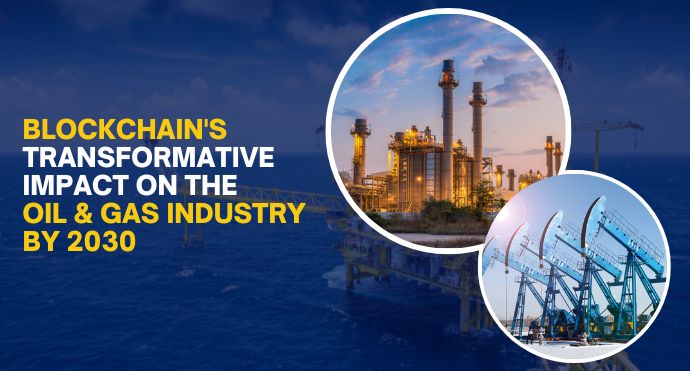Blockchain, the decentralized ledger technology, stands poised to revolutionize various industries, including the realm of oil and gas exploration and production (E&P). In this transformative journey, blockchain promises to enhance efficiency, transparency, and security throughout the entire E&P value chain, spanning exploration, production, and transportation.
Exploration:
Blockchain steps in as a catalyst for streamlining the exploration process by offering a secure and transparent medium for sharing vital data among stakeholders. Information such as seismic data, well logs, and geological surveys can be seamlessly exchanged, reducing costs and expediting exploration efforts.
Production:
Oil and gas production can become significantly more efficient with blockchain integration. It automates tasks like well data management, production reporting, and equipment maintenance. This automation liberates employees to focus on strategic responsibilities, enhancing overall operational efficiency.
Transportation:
Blockchain adds value by tracking the movement of oil and gas products from the wellhead to the end consumer. This robust tracking system improves efficiency and mitigates the risk of fraud, ensuring a secure supply chain.
Apart from these practical applications, blockchain contributes to the overall transparency and accountability of the oil and gas industry. With its secure and tamper-proof record-keeping, blockchain helps combat corruption and ensures fairness among all stakeholders.
Realizing Blockchain’s Potential:
The potential of blockchain in the oil and gas industry is underscored by compelling real-time data:
~ A study conducted by Deloitte highlights that blockchain could lead to a staggering annual saving of $1.6 billion in administrative costs for the industry.
~ IBM’s survey reveals that an impressive 91% of oil and gas companies are actively investing in blockchain technology.
~ The global blockchain in the oil and gas market is on an explosive growth trajectory, projected to surge from $1.17 billion in 2023 to a monumental $203.27 billion by 2032 at a remarkable compound annual growth rate (CAGR) of 77.3%.
Real-world Implementations:
Blockchain’s transformative impact is already tangible in the oil and gas industry through pioneering applications:
VAKT: VAKT, a blockchain-based platform, is streamlining post-trade processes for oil and gas transactions. It’s an automation powerhouse, reducing errors and enhancing efficiency by automating contract reconciliation, invoice processing, and payment settlement.
IBM Blockchain Oil & Gas Network: A consortium of forward-thinking oil and gas companies, the IBM Blockchain Oil & Gas Network is driving innovation through collaborative efforts. The network’s focus lies in using blockchain to optimize efficiency and transparency within the oil and gas supply chain management.
BP and Microsoft: The collaboration between BP and Microsoft is producing a blockchain-based platform for managing oil and gas contracts. This platform is set to automate the entire contract lifecycle, from negotiation to execution and termination.
Envisioning the Blockchain Revolution by 2030:
By 2030, blockchain is poised to usher in transformative changes across the oil and gas industry:
Efficient and Transparent Supply Chain: Blockchain will lead the way in forging a more efficient and transparent oil and gas supply chain. By furnishing a secure and tamper-proof transaction ledger, blockchain effectively tackles fraud and errors while significantly improving visibility across the supply chain. This promises substantial cost savings and efficiency enhancements for oil and gas companies.
Enhanced Safety and Security: Safety and security within the oil and gas industry are poised for a significant boost through blockchain technology. Blockchain’s tracking capabilities can be harnessed to monitor the movement of oil and gas products, ensuring strict adherence to safety and quality standards. This, in turn, reduces the risk of accidents and environmental damage.
Sustainability at the Forefront: In the quest for sustainability, blockchain plays a pivotal role in monitoring the carbon footprint of oil and gas products. It identifies opportunities for emissions reduction, enabling the industry to meet its sustainability objectives and curtail its environmental impact.
Conclusion:
The oil and gas industry is standing at the precipice of a blockchain revolution, projected to reach its zenith by 2030. By augmenting efficiency, transparency, safety, security, and sustainability, blockchain is set to propel the industry towards greater competitiveness and success. This seismic transformation will not only disrupt but redefine the oil and gas landscape, setting new standards for excellence and innovation.



